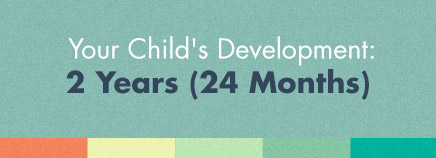
Tired of changing diapers? When it comes to toilet teaching, it’s best to take the cues from your child. Showing an interest in the potty, being aware of peeing and pooping, and expressing the need to go are signs that your child is probably ready. Build on that awareness by reading potty books together and “practicing” with a potty seat.
Doctors use certain milestones to tell if a toddler is developing as expected. There’s a wide range of what’s considered normal, so some children gain skills earlier or later than others. Toddlers who were born prematurely reach milestones later. Always talk with your doctor about your child’s progress.
Here are some things your toddler might be doing:
Communication and Language Skills
- says more than 50 words
- uses two-word phrases (“I go!”)
- is understood half the time by a stranger
- replaces baby talk (“num-nums”) with real words (“breakfast”) when prompted
Movement and Physical Development
- stacks blocks
- runs well
- kicks a ball
- walks down stairs
- draws lines and circular scribbles
- feeds himself or herself well
Social and Emotional Development
- plays alongside other children
- fears things like loud sounds, certain animals, etc.
- tells you when a diaper is soiled or he or she needs to use the potty
Cognitive Skills (Thinking and Learning)
- can follow a two-step command (“Pick up your toy and put it on the shelf.”)
- can name many body parts
- can pick out pictures in a book
- starts to engage in pretend play, such as feeding a baby doll
When to Talk to Your Doctor
Every child develops at his or her own pace, but certain signs could indicate a delay in development. Talk to your doctor if your child:
- doesn’t run, or always walks on tippy toes
- doesn’t speak, or makes vowel sounds but no consonants or words
- doesn’t express emotions (happy, sad, frustrated, excited) in response to others or surroundings
- does not engage in pretend play
Also, if you ever notice that your child has lost skills he or she once had or shows weakness on one side of the body, tell your doctor.

